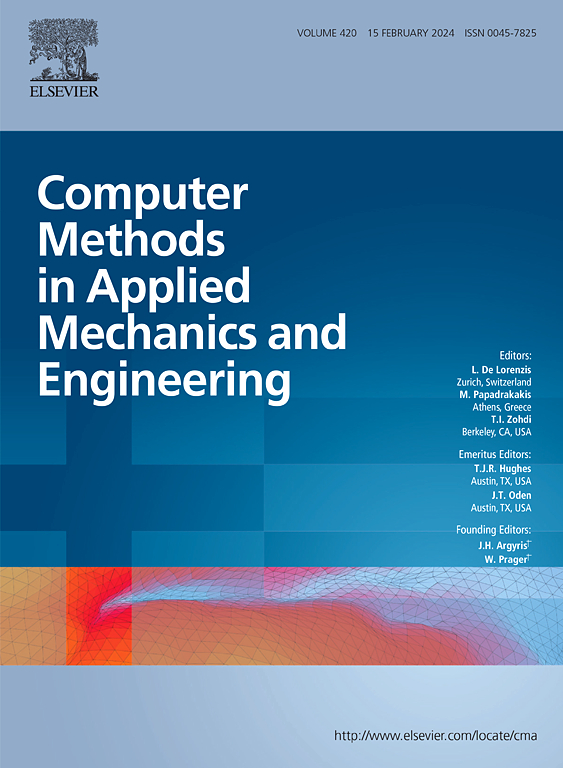AEK-MFIS:基于多保真度仿真和小故障概率重要性采样的自适应Kriging模型集成
IF 7.3
1区 工程技术
Q1 ENGINEERING, MULTIDISCIPLINARY
Computer Methods in Applied Mechanics and Engineering
Pub Date : 2025-04-03
DOI:10.1016/j.cma.2025.117952
引用次数: 0
摘要
基于代理模型的可靠性分析方法显著减少了真实性能函数调用的次数。然而,现有的可靠性分析方法在进行可靠性分析评估时忽略了低保真度(Low-Fidelity, LF)信息,导致高保真度(High-Fidelity, HF)有限元仿真费时,难以高效准确地估计小失效概率。为了解决这一问题,本文提出了一种新的可靠性分析方法AEK-MFIS,该方法旨在减少高频仿真调用次数,同时为小故障概率提供准确的估计结果。本文提出的AEK-MFIS包括以下策略:(1)基于卡尔曼滤波(KF)和多保真度(MF) Kriging模型,引入一种新的Kriging模型集合来融合不同保真度的信息;(2)为了更准确、高效地选择最佳点,提出了一种新的主动学习函数——基于误差的全局主动学习函数(Global Error-based active learning function, GEALF);(3)在EK预测的基础上,构造了新的停止准则,以避免过早成熟或晚成熟,对小失效概率进行评估。通过2个数值算例和4个工程算例,阐述并验证了所提出的小失效概率估计方法的有效性。本文章由计算机程序翻译,如有差异,请以英文原文为准。
AEK-MFIS: An adaptive ensemble of Kriging models based on multi-fidelity simulations and importance sampling for small failure probabilities
The reliability analysis methods based on the surrogate model significantly reduce the number of true performance function calls. However, existing reliability analysis methods ignore Low-Fidelity (LF) information in the assessment of reliability analysis, which consequently leads to the difficulty in efficiently and accurately estimating the small failure probabilities with time-consuming High-Fidelity (HF) finite element simulation. To address this challenge, a novel reliability analysis named AEK-MFIS is presented in this paper, which aims at reducing the times of HF simulation calls while providing the accurate estimation result for small failure probabilities. The proposed AEK-MFIS comprises the following strategies: (1) based on the Kalman Filter (KF) and Multi-Fidelity (MF) Kriging model, a novel ensemble of Kriging (EK) models is introduced to fuse information from different fidelities; (2) to select the best points in a more accurate and efficient way, a novel active learning function named Global Error-based Active Learning Function (GEALF) is presented; (3) a new stopping criterion is constructed based on the EK prediction, which aims at avoiding the pre-mature or late-mature for evaluating the small failure probabilities. Six examples involving two numerical and four engineering examples are introduced to elaborate and validate the effectiveness of the proposed method for estimating the small failure probabilities.
求助全文
通过发布文献求助,成功后即可免费获取论文全文。
去求助
来源期刊
CiteScore
12.70
自引率
15.30%
发文量
719
审稿时长
44 days
期刊介绍:
Computer Methods in Applied Mechanics and Engineering stands as a cornerstone in the realm of computational science and engineering. With a history spanning over five decades, the journal has been a key platform for disseminating papers on advanced mathematical modeling and numerical solutions. Interdisciplinary in nature, these contributions encompass mechanics, mathematics, computer science, and various scientific disciplines. The journal welcomes a broad range of computational methods addressing the simulation, analysis, and design of complex physical problems, making it a vital resource for researchers in the field.

 求助内容:
求助内容: 应助结果提醒方式:
应助结果提醒方式:


